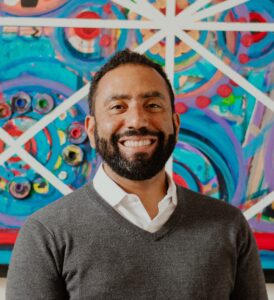Dr. Aaron Streets is the newest Scientific Advisor at Jane Coffin Childs Fund
Dr. Aaron Streets has joined the Board of Scientific Advisors at the Jane Coffin Childs Memorial Fund for Medical Research. Dr. Streets is an Associate Professor in the Department of Bioengineering at the University of California, Berkeley.
The Streets Lab develops technological advances to dissect and quantify biological systems. They use microfluidics, microscopy, genomics, and “whatever else [they] can find in the salvage bin at the loading dock” to understand biology at the level of individual cells.
Streets’ contributions have been recognized through numerous awards including an NSF Career Award, UC Berkeley’s 2023 Chancellor’s Award for Advancing Institutional Equity and Excellence, 2018 Chemyx Award. Furthermore, Streets is a Chan Zuckerburg Biohub Investigator, 2019 Pew Scholar, and one of Popular Science’s Brilliant 10 Scientists of 2022.

Dr. Aaron Streets
Streets’ career path
After double majoring in Art and Physics as an undergraduate at UCLA, Streets obtained his PhD at Stanford University. There he developed novel microfluidic devices that enabled high-throughput single-molecule measurements. Streets applied his innovative devices to provide new insight into enzyme activity and protein phase transitions such as crystallization and fibril formation.
Dr. Streets then voyaged across the Pacific Ocean to conduct his postdoctoral studies at Peking University in Beijing, China. There, Streets used his expertise in microfluidic device engineering to develop new tools that enabled single-cell analysis using both microscopy and RNA sequencing approaches. These approaches build towards Streets’ broader goal of developing a quantitative cellular atlas. He aims to understand how molecular signals are integrated into cellular functions by mapping the molecular composition and distribution within individual cells.
Streets has continued this theme in his own lab at UC Berkeley. Among many highlights, they have developed techniques for:
- simultaneous imaging and sequencing of protein-DNA interactions in single cells
- long-read, single-molecule methods for DNA sequencing that enable identification of highly repetitive genomic sequences such centromeres
Their powerful methods have applications in broad biological areas such as deciphering adipocyte lineages and analyzing immune responses. Furthermore, they even helped sequence the complete human genome.
Advocating for the next generation of scientists
In addition to the exciting science in his lab, Dr. Streets is a tireless advocate for increasing diversity in STEM. He cofounded and organizes the Stanford.Berkeley.UCSF Next Generation Faculty Symposium. This symposium just completed its third annual session and highlights excellent women scientists and scientists of color on the cusp of becoming faculty leaders. Essentially, the symposium is a response to the false notion that there are not enough talented scientists from underrepresented backgrounds. Encouragingly, many past participants have successfully obtained independent faculty positions.
Streets also organizes a Bioengineering Scholars Program that provides research opportunities to students from historically underrepresented backgrounds. This program provides research exposure for students early in their college career, which helps them prepare competitive graduate school applications.
Welcome to the Jane Coffin Childs Memorial Fund for Medical Research, Dr. Streets!